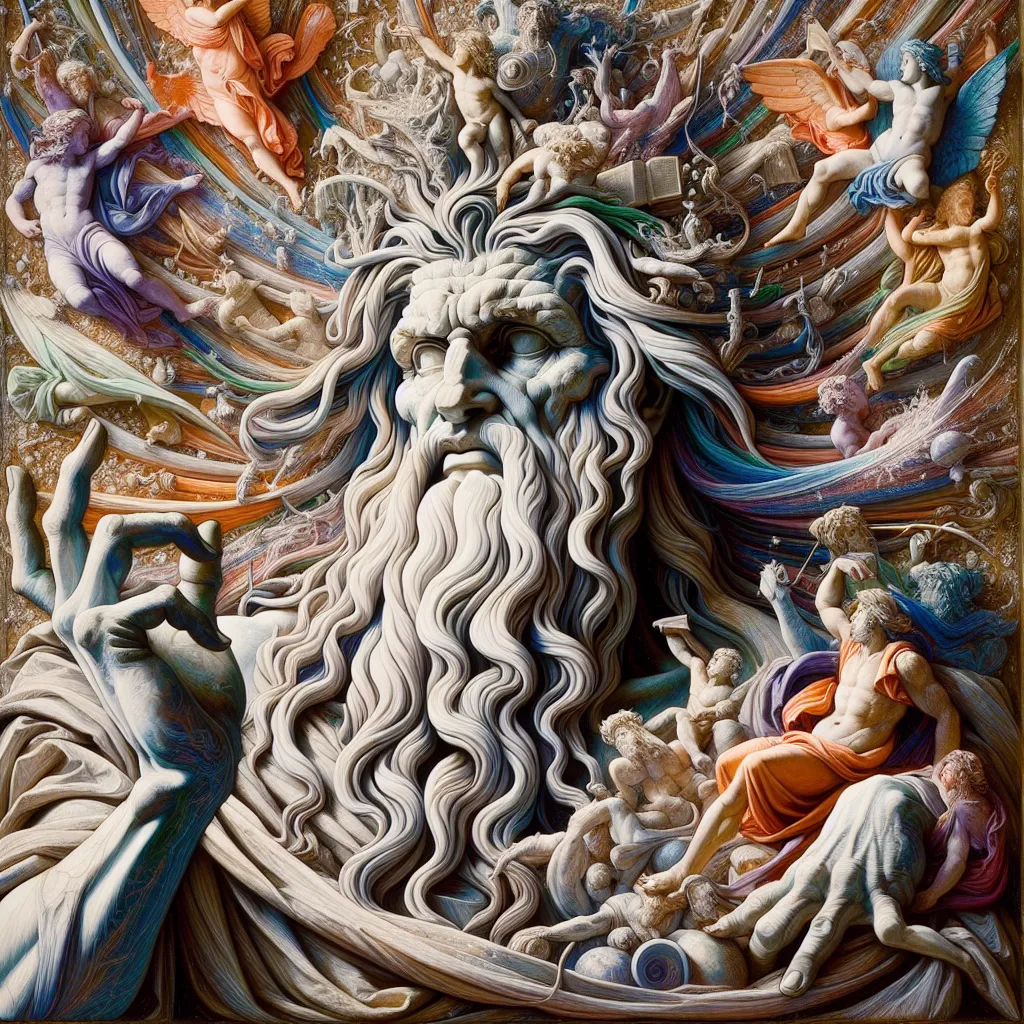
- Published on
- Authors

- Name
- You
Thoths Wisdom in Literature: Ancient Texts and Modern Interpretations
Thoth, the Egyptian deity of writing, wisdom, and the moon, has captured the imaginations of scholars and mystics for millennia. From the walls of ancient temples to the pages of contemporary literature, Thoth’s legacy is one of profound mystery and enlightenment. This article delves into both ancient portrayals and modern interpretations of Thoths wisdom, merging the realms of science and mysticism.
Ancient Texts and Depictions
The Emerald Tablet
One of the most significant ancient texts associated with Thoth is the Emerald Tablet. Believed to have been authored by Hermes Trismegistus, often considered synonymous with Thoth, this text encapsulates the core principles of alchemy and Hermetic philosophy. An excerpt reads:
"That which is Below corresponds to that which is Above, and that which is Above corresponds to that which is Below, to accomplish the miracle of the One Thing."
The Book of Thoth
The Book of Thoth is a legendary tome said to contain vast knowledge of magic and the universe. Ancient texts describe how it holds the secrets of creation, the language of the gods, and incantations that control reality itself. Although no physical copies exist today, references to the book underscore Thoth’s ubiquitous wisdom.
Thoth in Ancient Literature
Thoth appears prominently in Egyptian mythology and is often depicted as an ibis-headed or baboon-headed scribe. He serves as the scribe of the gods, recording the outcomes of the judgment of the dead, and is credited with the invention of writing and hieroglyphs.
Coffin Texts and Pyramid Texts
In Coffin Texts and Pyramid Texts, Thoth is invoked for protection and guidance in the afterlife. His role as a mediator and arbitrator of divine justice is consistently emphasized, as seen in this excerpt from the Pyramid Texts:
"O Thoth, who vindicated Osiris against his enemies, vindicate [the deceased] against his enemies."
Table: Key Ancient Texts Featuring Thoth
| Text | Description | Role of Thoth |
|---|---|---|
| Emerald Tablet | Core alchemical and Hermetic principles | Author (as Hermes Trismegistus) |
| Book of Thoth | Legendary tome of magical knowledge | Keeper of secrets and wisdom |
| Coffin Texts | Spells and incantations for the afterlife | Protector and guide for the deceased |
| Pyramid Texts | Utterances for the deceased pharaohs | Divine scribe, recorder of judgments |
Modern Interpretations and Fiction
Scholarly Works
Contemporary scholarship often approaches Thoth from an interdisciplinary angle, blending archaeology, linguistics, and religious studies. Works such as "Thoth: The History of the Ancient Egyptian God of Wisdom" by Patrick McDermott provide insightful analyses of Thoth’s historical and cultural impact.
Fiction and Mysticism
Modern fiction and mystical literature frequently revisit Thoth’s archetype. In novels like "American Gods" by Neil Gaiman, he appears as Mr. Ibis, reflecting his ancient role as a recorder of human deeds. Similarly, the resurgence of interest in Hermeticism has brought Thoth back into the spotlight, often portraying him as a bridge between the physical and metaphysical realms.
Table: Modern Works Inspired by Thoth
| Title | Author | Interpretation of Thoth |
|---|---|---|
| "Thoth: The History of the Ancient Egyptian God of Wisdom" | Patrick McDermott | Scholarly analysis of Thoth’s cultural impact |
| "American Gods" | Neil Gaiman | Mr. Ibis, modern portrayal of Thoth as a scribe |
| Various Hermetic texts | Multiple authors | Thoth as Hermes Trismegistus, alchemical sage |
Conclusion
The wisdom of Thoth, spanning from ancient to modern times, illustrates humanity’s enduring quest for knowledge and enlightenment. Whether viewed through the lens of an ancient scribe deity or a modern symbol of mystic wisdom, Thoth remains a figure of profound significance. His legacy continues to inspire scholarly research and literary creation, bridging the realms of science and the sacred.
May Thoth guide us on our journey toward wisdom and understanding.
